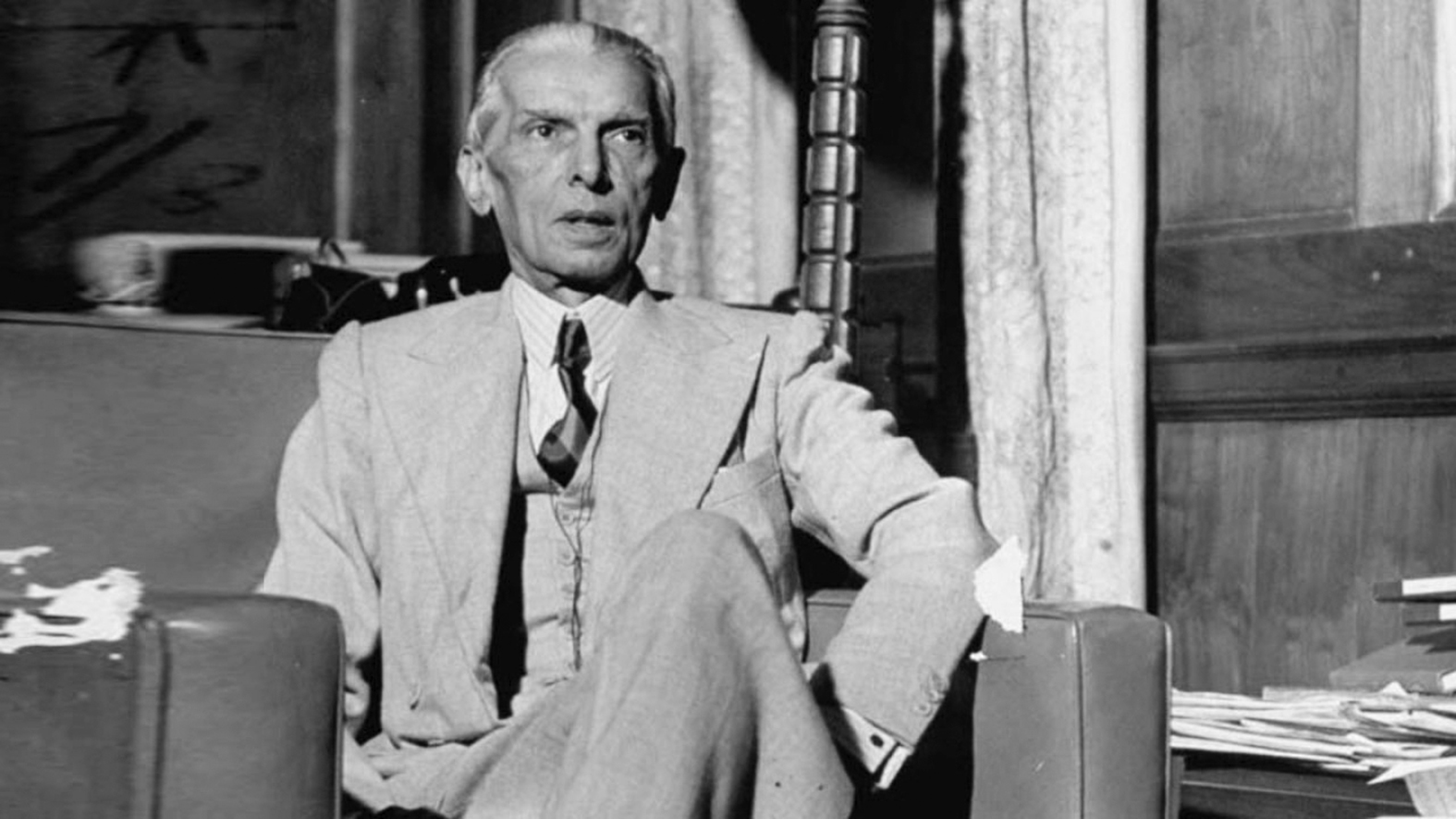Quaid-e-Azam Muhammad Ali Jinnah is the founder and the first governor-general of Pakistan. He was leading the freedom movement in the subcontinent and is recognized as the Father of the Nation. His achievements and legacy have left a deep-rooted impact and directly reflect his vision, determination, and courage.
This Essay on Quaid-e-Azam sheds light to his life journey. He dedicated his life to the fight for independence, highlighting his accomplishments as; an exemplary leader with a remarkable foresight, a visionary political leader, and a steadfast nation-builder. He not only helped establish Pakistan but was leading the movement for a separate and independent nation for Muslims of the subcontinent and continues to inspire future generations through his ideologies and accomplishments.
Jinnah’s dedication to his values of unity, religion, and discipline established the foundation for a modern and progressive nation, the Islamic republic of Pakistan. He rose from being an elegant lawyer to a political leader who inspired a whole generation of Muslim Youth fighting for their freedom. Quaid embodies resilience in the face of adversity, and we will explore more of it in this Quaid e Azam essay in English
Early Life and Education
Childhood and Family Background
Quaid e Azam’s actual name is Muhammad Ali Jinnah. He was given the title of Quaid-e-Azam after the independence of Pakistan which means Great Leader. He is also known as the Baba-e-Qaum, which means Father of the Nation.
Jinnah was born on December 25, 1876, in Karachi. His family was of merchants; his father, Jinnahbhai Poonja, was a successful Gujarati trader. From very early on, Jinnah was exposed to a blend of traditional values and intellectual ideas. Having been born in what was then the British India, he was always exposed to India’s vast culture.
Educational Pursuits and Influences
Muhammad Ali Jinna started his schooling from the Sindh Madrasa-tul-Islam. Later, he studied at the Christian Missionary Society High School in Karachi. After that, he moved to London to study law at Lincoln’s Inn, which is one of the four Inns of Court.
Studying Law in England had a transformative impact on Jinnah. He was exposed to a variety of different ideas, western culture and how the political environment operates over their. This had a major influential impact on his political philosophy as he took inspiration from their legal system, and concepts like self-government and democracy.
Political Career
Early Political Activism and Role in Indian National Congress
Muhammad Ali Jinna joined the Indian National Congress in the early 20th century, marking the beginning of his political career. In the beginning, he believed that Hindu-Muslim unity is the solution to illuminating the British rule on the subcontinent. He also believed that Hindu and Muslims could live together under one nation. It was his life’s mission to fight for the independence from the British empire for India.
Jinnah was an eloquent man. He was always well dressed and had extensive legal expertise, which immediately made him as a powerful political figure and respected leader. This time is crucial for understanding his evolution and methods, as described in this essay on Quaid-e-Azam.
Leadership of Muslim League and Advocacy for Muslim Rights
As mentioned before in this essay Quaid e Azam, in the beginning, Jinnah worked hard and tirelessly in the Congress, but he eventually realized the bitter truth; Muslims and Hindu cannot live together in one nation. He lost faith in the party’s direction because of its disregard for the issues that the Muslim community of the subcontinent had.
Finally, after exhausting his efforts in congress, in 1913, he joined the All-India Muslim League, where he rose to prominence as an advocate for Muslim’s rights and interests in India. Jinnah’s leadership was important in converting the League into a formidable political organization that was dedicated to protecting Muslim’s sociopolitical and economic rights.
Key Events and Milestones
Several important events and milestones distinguished Jinnah’s political path, and they are frequently addressed in an essay on Quaid-e-Azam:
- The Lahore Resolution (1940): established the desire for a distinct Muslim state, subsequently known as Pakistan.
- Jinnah’s 14 Points (1929): established Muslimcommunity’s political rights, including federalism, minority rights, and representation.
Role in Pakistan Movement
Leadership and Strategy in Achieving Independence
Jinnah’s leadership in the Pakistan independence Movement was distinguished by his vision and dedication to the cause of Muslim independence. He successfully roused the public, talked with British authorities, and held discussions with Indian leaders to make sure the establishment of a distinct Muslim state. This era is significant because it exhibits his unwavering intellect, commitment and strategic skill.
Negotiations with British and Indian Leaders
In this essay on Quaid e Azam, it is important to highlight the impactful negotiation abilities that Jinnah possessed. It played a vital role, especially during the last few phases of the independence campaign. Jinnah handled the difficult political environment of that time with his exceptional negotiation and diplomatic skills. He knew exactly how to balance the demands of British authorities and Congress leaders. No matter the situation, he was dedicated and unwaveringly campaigned for the establishment of Pakistan, a separate nation of Muslims of the subcontinent.
Establishment of Pakistan on August 14, 1947
Finally, after decades of relentless efforts, Jinnah’s goal of an independent nation for Muslims became a reality on August 14, 1947, when Pakistan finally came into being. He was appointed as Pakistan’s first Governor-General, and he established the nation’s governance and policy structures. This exemplifies his resilience and is an important part in a Quaid e Azam essay in English.
Vision and Leadership
Ideology and Principles
Muhammad Ali Jinnah’s worldview and his core values are reflected in his famous motto, “Unity, Faith, and Discipline.” These values are the cornerstone to the independence struggle and shaped his vision for Pakistan. They emphasize the significance of national unity, strong faith, and focused work in establishing a strong and resilient nation. These values are such an integral part of Pakistan’s culture that now in the 21st century, after almost 100 years, are ingrained in the educational curriculum of Pakistani children.
Governance and Policy Initiatives
As a leader, Jinnah played a significant role in developing Pakistan’s constitutional structure and policies. He pushed for democratic administration, economic progress, and the protection of minority rights. His vision for Pakistan was one of a modern, progressive state that valued justice, equality, and human rights.
Conclusion
Quaid-e-Azam Muhammad Ali Jinnah’s achievements and contributions in the making of Pakistan are equal to none. He is an important figure in not only the freedom struggle of the Muslims but also for the subcontinent’s history. Jinnah was an exemplary leader, and he has an unshakable dedication to ideals and values of Unity, Discipline and Faith. His strategic approach towards getting independence from British Empire was critical in the formation of Pakistan.
As a politician and stateman, Jinnah set the groundwork for a nation based on the principles of justice, equality, and democracy. His long legacy continues to inspire and guide future generations. He is a timeless symbol of leadership and vision for Pakistan’s youth.
Reflecting on Jinnah’s life and accomplishment, his influence stretches beyond politics. He continues to be a symbol of perseverance, honesty, and commitment, reminding us of the need of visionary leadership in defining a nation’s destiny which is reflected in this Quaid e Azam essay.





